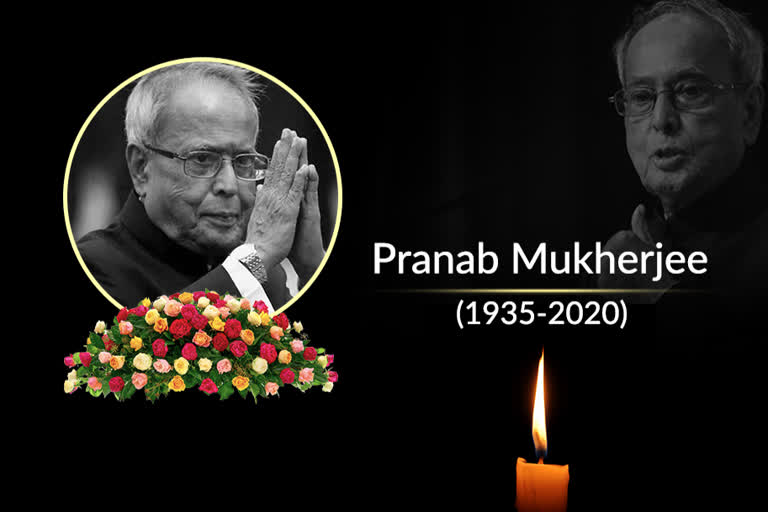Hyderabad: In Indian politics, Pranab Mukherjee holds a unique position. In good as well as in tumultuous times he was one politician-cum-statesman to whom everyone – politicians, analysts, the common man looked up to find guidance, a solace – a rare feat that not many have had achieved. As a senior leader in the Indian National Congress and as party's top troubleshooter, Mukherjee held several key portfolios in the government.
Before initiation into politics, Mukherjee tried his hands in different jobs until former prime minister Indira Gandhi discovered his managerial skills during a by-election campaign in Midnapore for V. K. Krishna Menon. Soon Mrs Gandhi helped Mukherjee in getting a Rajya Sabha ticket in 1969. Four years later in 1973, Mukherjee became a minister in Mrs Gandhi's cabinet and became one of her most trusted lieutenants.
Later in 1975, 1981, 1993 and 1999, Mukherjee was re-elected to the Rajya Sabha. Until the assassination of Indira Gandhi in 1984, he was one of the prominent leaders of the Congress, yet when her son Rajiv Gandhi took over the reins, Mukherjee was overlooked.
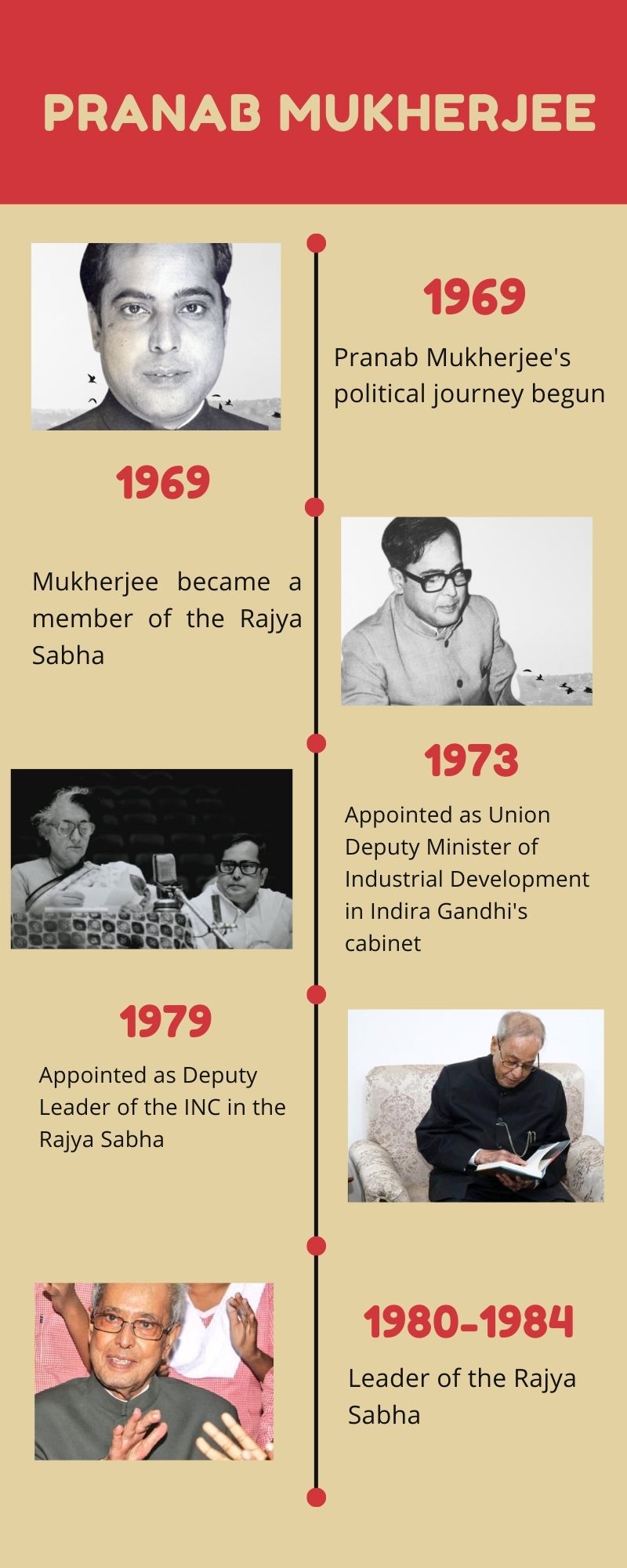
Mukherjee who served the Congress with great commitment and devotion felt humiliated and quit the Congress party. He went on to form his own party the Rashtriya Samajwadi Congress in 1986. But within years he made a truce with Rajiv and rejoined the Congress in 1989. Once the UPA came to power in 2004, he contested for the first time in Lok Sabha elections.
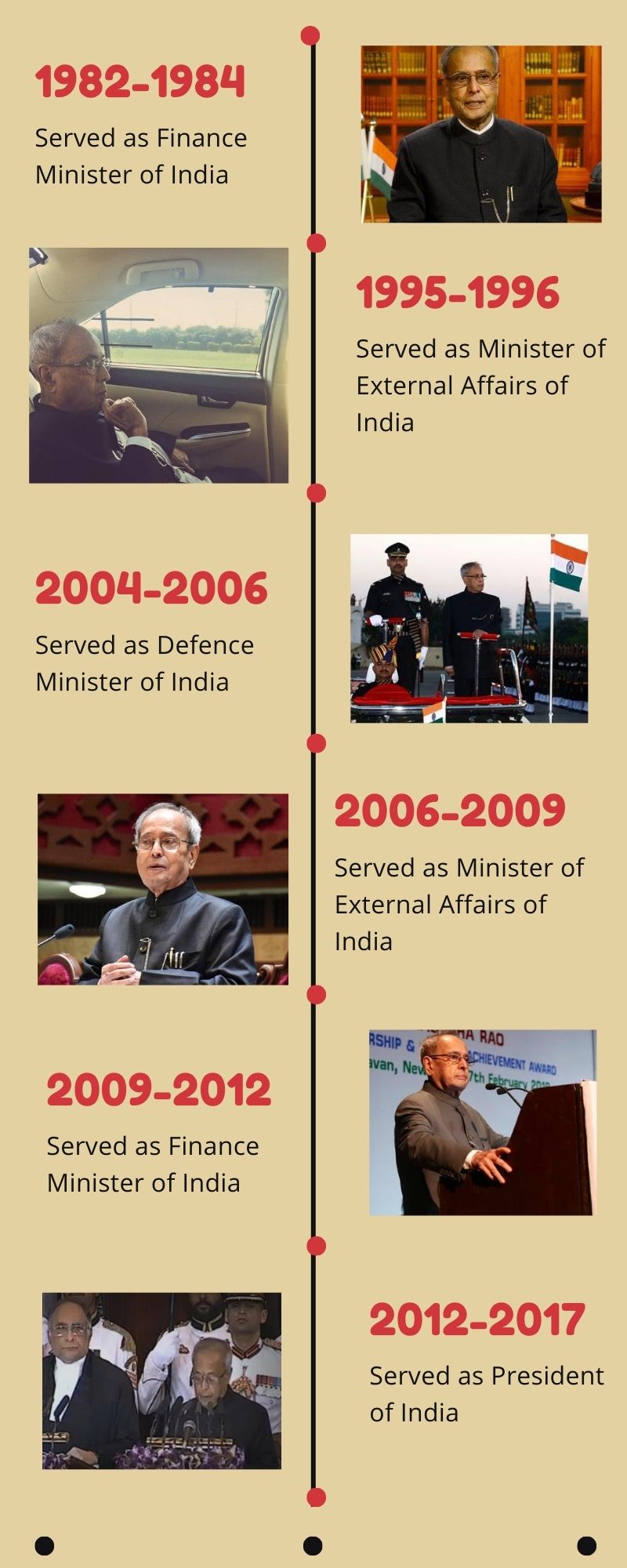
The year 2004 was a highly politically charged phase that debated who would become the PM of India especially after Sonia Gandhi declined to hold the coveted post. One name that made rounds in political circles was Pranab Mukherjee. But out of the blue Sonia made Manmohan Singh the prime minister, and Mukherjee played a second fiddle – the defence minister.
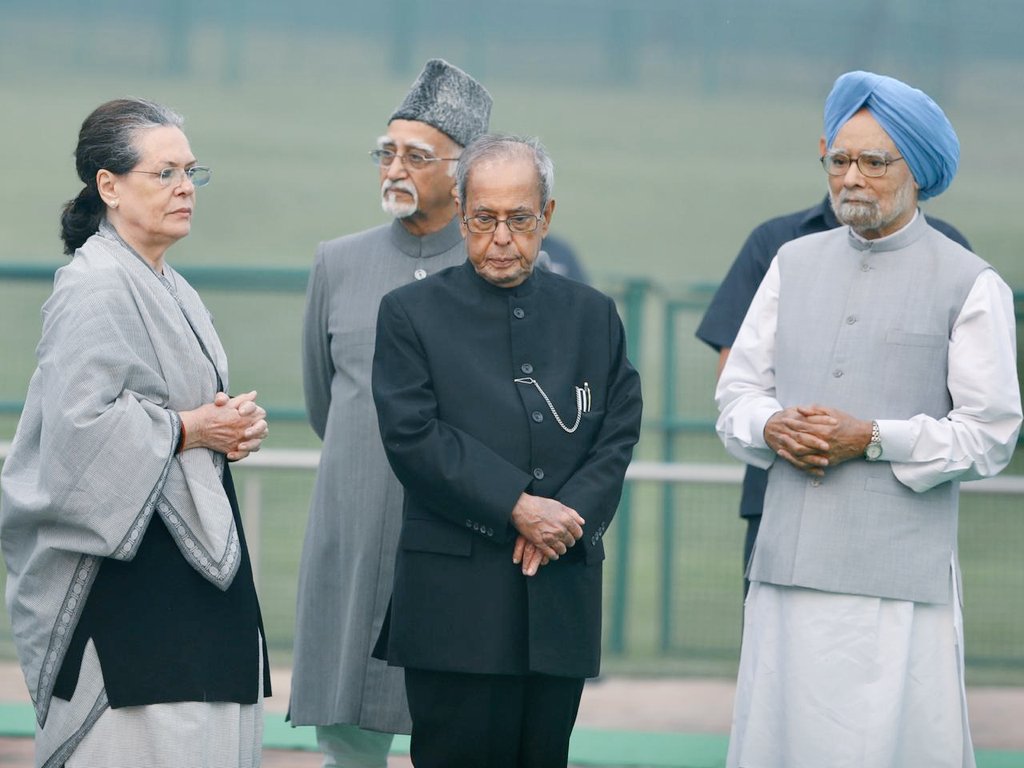
Mukherjee held several key posts in finance, defence, commerce, external affairs before becoming the President of India in July 2012. In Raisina Hill, he took up many initiatives during his presidency. The most important among them are:
DEMOCRATISATION OF PRESIDENCY
On the first anniversary at Rashtrapati Bhavan, Mukherjee made a number of changes in a bid to democratise the institution of the presidency.
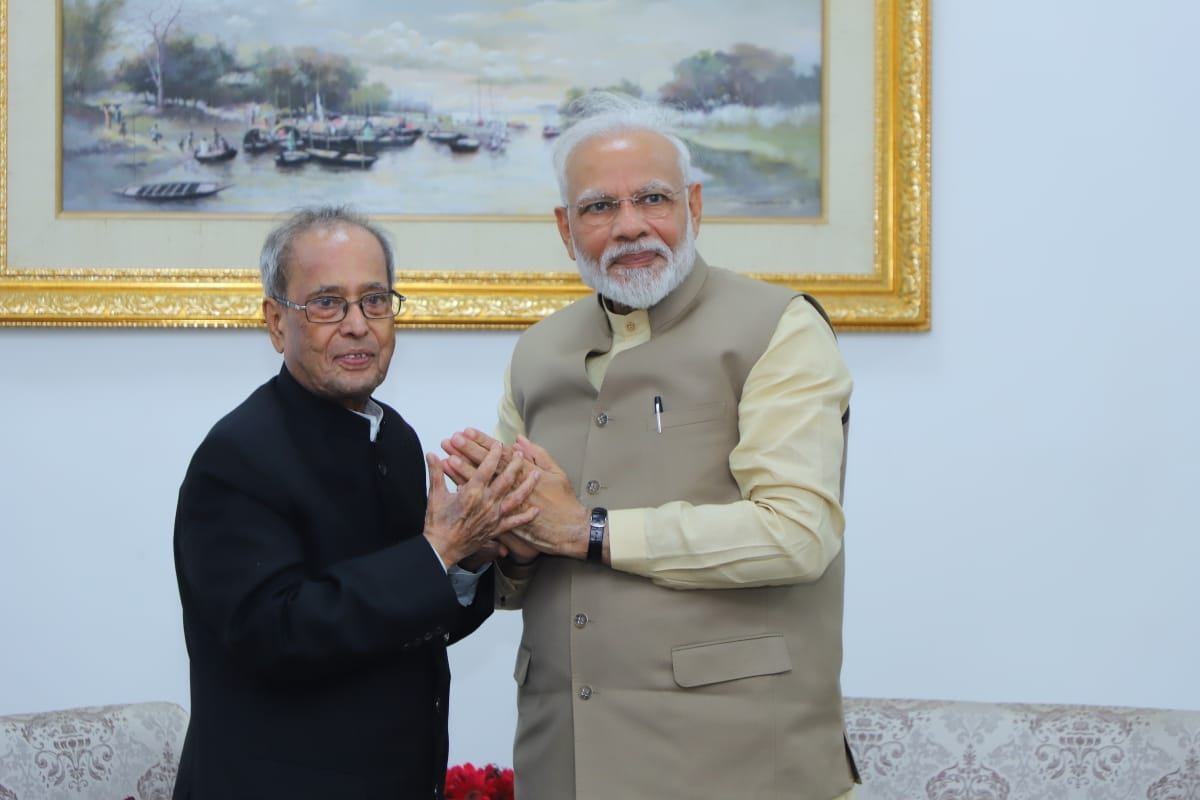
ORDINANCES AND MERCY PETITIONS
Pranab Mukherjee promulgated or re-promulgated 26 ordinances during his tenure. In the fifth year, he promulgated five ordinances.
In the same period, he commuted 4 mercy petitions and rejected 30, which is the second-largest among all the Presidents of India.
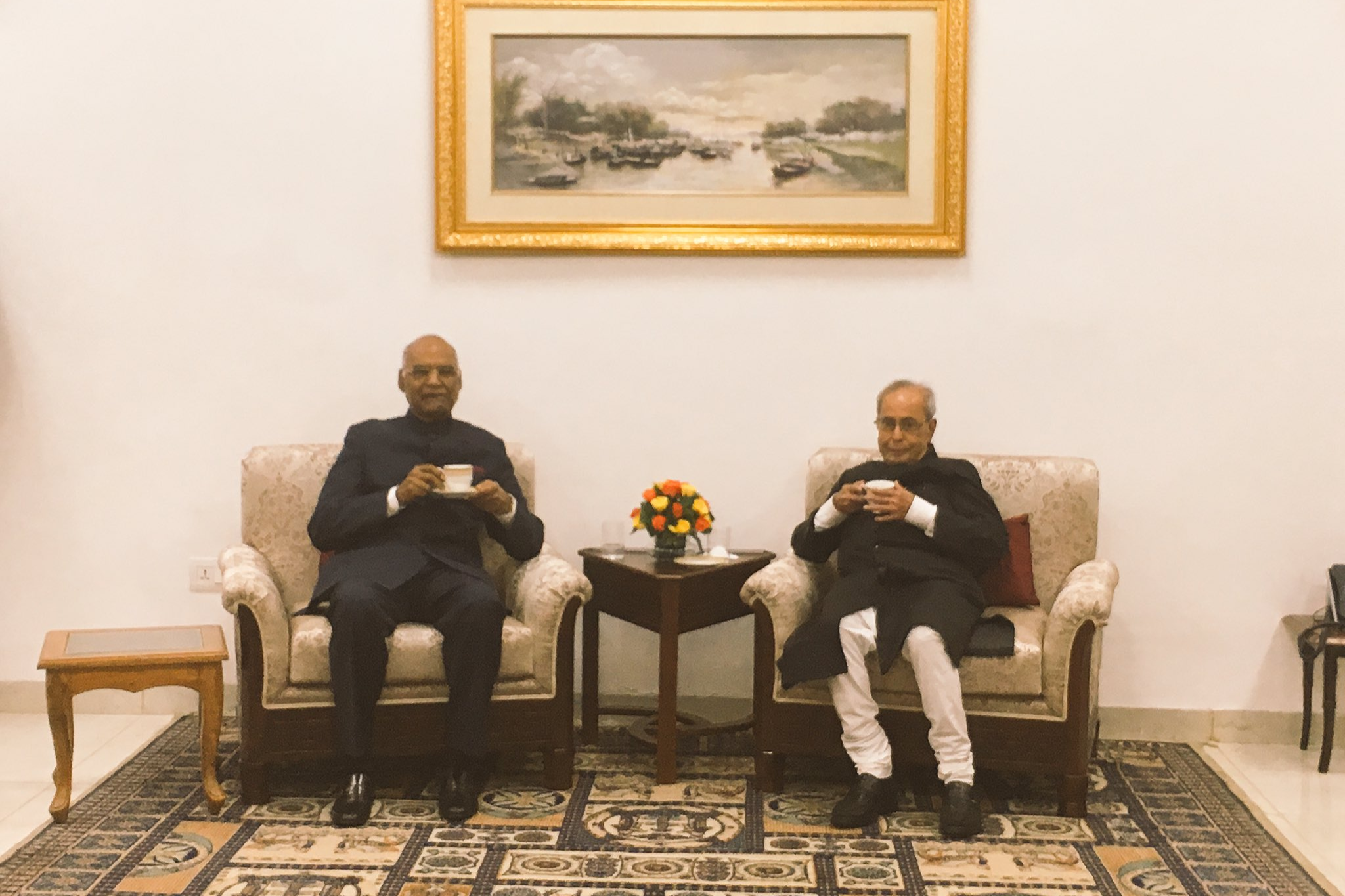
WELFARE ACTIVITIES
President Pranab Mukherjee launched '4S' initiatives.
'Sanskriti' for the age group of 7 to 15 years.
'Samagam', a community initiative for senior citizens residing in the President's Estate. Facilities like yoga classes, community singing, counselling services, free health check-ups and board games have been made available.
'Sparsh', an initiative for special children, a respite centre has been opened.
'Sanskar' aims at meeting the nutritional requirements of children at the Rashtrapati Bhavan Play School.
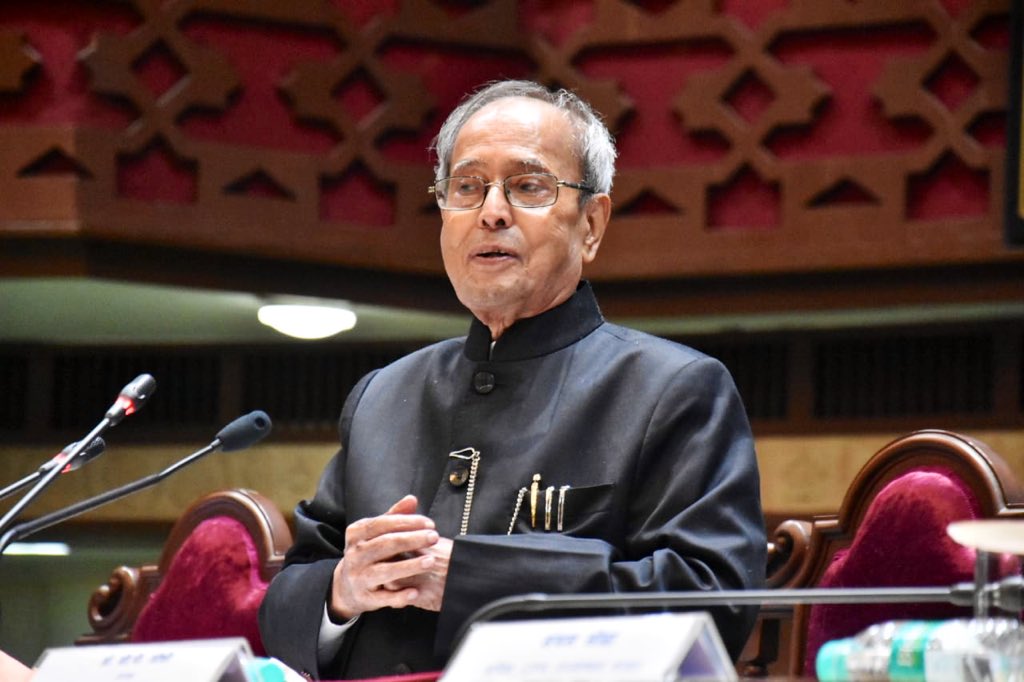
TEACHER PRANAB MUKHERJEE
Mukherjee himself a Master's degree holder in history, political science and law, taught about 80 students of classes 11 and 12 at a school within the premises of the Rashtrapati Bhavan.
COMMISSIONING OF ROOFTOP SOLAR POWER PANELS
Spearheading several initiatives to increase energy efficiency in India by inaugurating rooftop solar panels capable of generating 508 kilowatts of power
SMARTGRAM INITIATIVE
Launching the ‘Smartgram’ initiative to develop rural areas by hi-tech facilities and turn them into modern townships.
RASHTRAPATI BHAVAN ON TWITTER
Launching the twitter account of Rashtrapati Bhavan in 2014 to connect better with the masses and keep them updated.
E-GOVERNANCE
President Mukherjee took several initiatives to adopt new technologies and solutions. He launched the 'E-Pustakalaya' project for barcoding and cataloguing of books. Around 8310 e-books have been uploaded and over 34,117 books have been e-catalogued. These books are available under the e-office platform.
Mukherjee led the nation from the front be it the Criminal Law (Amendment) Ordinance or laws related to sexual offences or rejecting 24 mercy pleas including that of Yakub Memon, Ajmal Kasab and Afzal Guru.
The former president was honoured with Padma Vibhushan, India's second-highest civilian award, in 2008.
On 8th August 2019, the former President was honoured with the Bharat Ratna by the President of India, Ram Nath Kovind.
On 10 August 2020, Mukherjee took to Twitter to announce that he had tested positive for COVID-19 prior to his surgery to remove a brain clot at the Army's Research and Referral (R&R) hospital in Delhi.
